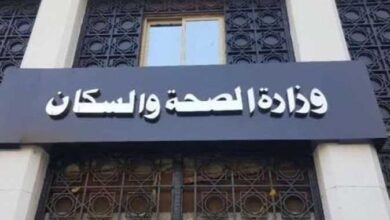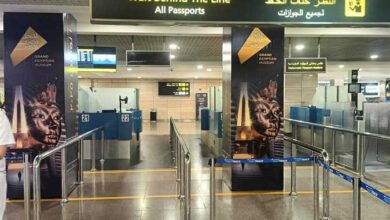MAHALLA — The doors to the Mahalla Public Hospital’s emergency department are closed. The walls and floors are covered in blood. The nurses have come to the hospital for their shifts but, instead, they have clustered into a safe backroom.
On 7 August, two families were fighting outside the hospital after sunset. After the brawl was over, an ambulance carried two victims of the fight into the hospital. Each of the victims belonged to a different family. When one of the two families learned that one of their own had died, they stormed into the hospital to take revenge on the other. By then, the doctors were examining the injured victim. They kicked out the doctors and the nurses and killed the patient before the rest of the family joined in to continue the fight in the hospital’s other rooms.
"We are on strike in the emergency department until we are secured," says one nurse, who declined to give her name out of fear for her personal safety. All the other nurses declined to be identified for the same reason.
"This is not the first time that a hospital has been broken into,” said hospital head Dr. Saad Mekky. "In March 2011, I was stabbed several times by the family of a man who was brought dead to the hospital. They stabbed me for declining to bring him back to life. I never studied anything about how to return a dead man to life."
The Mahalla Public Hospital is the biggest public hospital in the Delta Governorate of Gharbiya. The hospital has the most up-to-date medical equipment and the hospital's warehouses are full of medication, according to Mekky.
"I have to thank the government because it allocated LE120 million to the hospital during the latest renovation. The government gave another LE3 million to the hospital to stock up on medicine, as it is a place where the revolution’s injured are treated. We have stocks that do not exist in any other public hospital in Egypt and we have about 800 doctors, who can serve an entire city,” he says.
After the attack, the hospital had a private security company secure the building; however, the security guards were frightened by the recurring incidents and left the job.
Dr. Mohamed Sharshar, deputy health minister in Gharbiya, says the Health Ministry is immediately notified of such attacks and added that it has given instructions to keep doctors and nurses in a safe place when fights break out, and to summon security to address the situation. Sharshar says security immediately responds to calls for help.
He blames these incidents on deteriorating ethics, and adds that when doctors decline to help, families might get angry and so a senior doctor should be present to address similar situations.
"But when a problem happens, they have to step back, along with the entire medical team," he adds. "We have clear instructions not to provoke the patients, to be nice to them and to provide needed equipment. Still, security has to be tightened at hospitals."
Such incidents are not just confined to Mahalla Public Hospital. On 9 August, three doctors were injured in a similar incident in a Luxor hospital. Another two attacks happened in Sohag and Damietta in July. On 25 July, the canal city of Ismailia saw an armed theft in its public hospital.
“There are more than 40 hospitals in Egypt whose emergency departments and receptions stopped working [recently] due to the lack of security,” says Mekky.
Many lament the inadequate security response.
"When there is a big problem, an armed force is dispatched to the hospital to protect it. But they leave the hospital one or two days later and so the incidents are repeated. Sometimes, the policemen leave, saying they have not been given orders to handle the situation. Worse still, nobody has been punished for storming into a hospital," says Dr. Shaimaa Mosallam, a member of the Doctors Without Rights movement, which seeks to improve doctors' conditions and demand their rights
"Attacks on hospitals are directly proportional with the increase in violence on the streets," says Mosallam, adding that in Egypt, a patient is usually accompanied by more than one person, each of whom tries to show their concern by insulting the medical crew. "The graver the insult, the bigger the compliment."
In response to the frequent attacks, the Doctors Syndicate published a statement on its website on 11 August threatening that doctors would not work at hospitals that lacked proper security.
Dr. Abdel Fattah Rizq, secretary general of the Doctors Syndicate and a member of the Muslim Brotherhood, said the syndicate complained about these incidents several months ago and called for better security for hospitals, and the intervention of military police and the army, after the Interior Ministry failed to respond adequately.
Like many members of the Brotherhood, for Rizq, there is the question of a possible conspiracy aimed at attacking the state while President Mohamed Morsy, a Brother himself, is ruling.
“We suspect that some policemen may be inciting thugs against doctors. Sometimes, policemen refuse to file reports of the attack and ask the person filing the complaint to drop the report,” he says, adding that some figures from the former regime might also be behind the attacks to induce a constant state of chaos.
Assaults on hospitals are part of a conspiracy against the health system, says Rizq, adding that such attacks constitute a threat to Egypt’s national security, since the breakdown of health services could create a serious crisis.
“We submitted a proposal for a law to set up a police force for hospitals. That law would have stipulations to ensure that criminals were arrested quickly and would have harsher penalties. The proposal was comprehensive and called for establishing a new apparatus for the protection of hospitals. We reject the idea of arming doctors because doctors should be armed by the love of people and their respect,” says Rizq, adding that another solution is to review the Health Ministry's budget to supply hospitals with their needs. At one point in the debate, arming doctors was mentioned by the Doctors Syndicate to pressure the government for more security.
But the steps taken by the Doctors Syndicate to address the crisis were not satisfactory for some doctors. Ahmed Hussein, a member of the general assembly of the Independent Doctors Syndicate, resigned from his membership of the official Doctors Syndicate, saying its approach was politicized and not practical.
"Issuing calls and demands is of no use now. The syndicate should have made a decision to close the unequipped and unsecured hospitals," says Hussein.
At the first meeting of the assembly for the independent syndicate on 12 August, Hussein said the new formation aims to provide an alternative way for presenting doctors' demands, away from the formal syndicate.
Hussein adds that the Brotherhood's hegemony over the Doctors Syndicate has made its decisions serve political ends, rather than the interests of doctors.
"The branch syndicates in the governorates are closer to the doctors and have a feel for the problems on the ground. Besides, most of them are independent and not governed by political criteria," adds Hussein.
Mosallam says branch syndicates have played the biggest role in addressing the crisis, since they sent out letters to hospitals saying they should not operate in an unsafe environment. They also advised that in the event of an attack taking place and a report being filed, the name of the hospital, not the doctor, should be taken.
An official source from the Interior Ministry told Egypt Independent that hospitals would be better secured and that this plan would be implemented over the coming few days in 100 hospitals in greater Cairo and some other cities. Hospitals would be hooked up to the emergency police with a wireless network, the source, who preferred to remain anonymous, said.
But there are other root causes to the lack of security.
On 2 August, the Demerdash hospital closed its doors after a fight broke out between the family of a patient and the medical team treating him. The doctor was injured after being hit with a drip holder and the rest of the team was threatened with a firearm.
Islam, a junior doctor who works in the Cairo-based Demerdash public hospital, also a site of recent havoc, was supervising the treatment of the patient in question. “The patient’s family accused us of being slow, but we were acting within the limits of what we had. Public hospitals have limited facilities, but the patient’s family was not patient,” he says.
For Mosallam, one of the main reasons for these incidents is the insufficient medical supplies.
"The Health Ministry’s budget needs to be reviewed and raised from 4.5 percent to 15 percent. We are demanding this budget, whatever the size of the overall budget and regardless of economic problems," she says.



